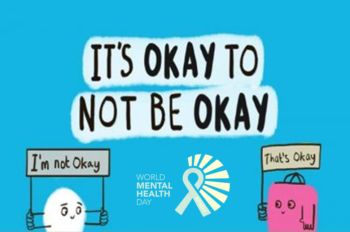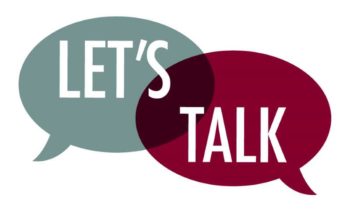
World Mental Health Day: Men Need Mental Health Help Too And Here’s What You Can Do
Lifestyle Oct 08, 2021
In the spirit of World Mental Health Day (happening on Sunday October 10th), we take a closer look at how we as a South Asian community can work towards destigmatizing mental health awareness among men. Men are becoming one of the largest growing demographics requiring mental health assistance. With the undeniable strong-man attitude embedded in our culture, which doesn’t help, it’s time to help our men break through the stigma barrier. We have tips on how to recognize that he needs help, including words of advice from a first-person perspective.
What’s World Mental Health Day All About?
World Mental Health Day is being recognized across the globe on October 10, 2021. This year, the day will be underpinned by the theme ‘Mental Health in an Unequal World.’ However, in the South Asian community, it may just be another day as the unfortunate reality is that mental health is just not something that is spoken about, especially not by men. But, more on that later!
The first World Mental Health Day started 29 years ago on October 10, 1992 and was established by the World Federation for Mental Health in an effort to bring about awareness and disseminate education about mental health. According to US National Library of Medicine, National Institute of Health (NCIB) the “annual program was created as a way to bring more attention to mental illness and it’s effects on individual life, work, family, and overall stability of communities and countries.”
These efforts continue to be crucial in breaking down the stigmas surrounding mental health and ensuring people are not shamed into not getting the help they need to lead their most authentic and full lives, which is very much what continues to be the case in the South Asian community.
That said, it is important to understand what mental health refers to for the purpose of our discussion today. To be clear, “mental health includes our emotional, psychological, and social well-being. It affects how we think, feel, and act. It also helps determine how we handle stress, relate to others, and make choices.” Often, when we think of mental health, particularly within the South Asian lens, there’s an exaggerated stigma surrounding it that leads to a person being viewed as not ‘normal’ or ‘crazy.’ However, this is just not the case as mental health doesn’t just include being diagnosed with a disorder, like schizophrenia. Instead, mental health can include less noticeable battles like depression and anxiety.

Mental Health x South Asian Men:
Mental health in the South Asian community is not something that is openly discussed, even today, even though there is so much more education about it.
Don’t believe me?
Maybe you’ll believe Anjulie, whose name has been changed to protect her family’s privacy, who sat down to talk about her experience with supporting her husband through his mental health struggles. “Mental health was never discussed in terms of an illness or even discussed at all, she explained. “Even though distant members of my husband’s family struggled with it, it was never a topic of discussion. Even over the years when other members of my husband’s close family members struggled with personal issues, therapy or a possibility of mental health issues was never acknowledged or even considered as a possibility.”
The fact is that the taboos surrounding mental illness are still prominent within the South Asian community, whereby people firmly believe that being open about one’s mental health struggles will impact “…a family’s reputation and status,” notes BBC.
The BBC also adds that, many South Asians falsely think that “Black magic, will of God or bad parenting were [the] causes of mental illness. It was also wrongly thought to be passed on through the genes to future generations and seen as an obstacle to arranged marriages as a result.”
Thus, to save face for the family and to not appear frail, many South Asians suffer in silence with their mental illnesses and do not seek the professional help that they need. This is unfortunate as the impact of not addressing one’s mental health can be detrimental to more than just the person going through it.
Anjulie shared that “[her] husband’s struggle has been very difficult. Ever since he [was] diagnosed, it was very difficult for him to come to terms with it. After he came to terms with his diagnosis, he really struggled with embracing it and being able to discuss it openly with family and friends. Even when he finally accepted it and wanted to talk about it, he didn’t have the right outlet to do so as mental health can be very hard to grasp or understand, even by family and friends. His struggle also included finding the right medication that worked for him and that did not interfere with his daily life.”

For the purpose of this article, let’s focus on South Asian men.
Within the South Asian community, “boys are born to earn and support the whole family,” explains NCBI. That’s a lot of pressure for one person! As such, this may be why approximately “20% of Indian men are clinically depressed,” which equates to “one in five Indian men,” reports Carter Center. However, this number is likely much higher, but many men are shamed into silence by South Asian culture as they’re supposed to be the backbone of their family and admitting to having a problem is simply not ‘manly.’ What’s more is that mental illness is not limited to one social class either. In fact, the Carter Center also noted that the typical profile of an Indian male experiencing depression was no longer “middle-aged (above 35), family-oriented, working class personality.” It now extended to upper-class, high-flying businessmen and professionals.”
Nowadays, men are faced with a variety of external pressures that contribute to or exacerbate their mental illnesses, according to the Center,
- Pressure to maintain a material lifestyle
- Social conflicts such as divorce
- Problems with death and the dying of loved one
- HIV infections
- Spiritual and religious conflicts, including witchcraft and conversions.
Without being able to openly seek help at the risk of admitting weakness within a patriarchal society that places men on a pedestal, men are forced to internalize their mental illnesses and struggle in silence. However, their inability to deal with what’s going on internally often manifests externally. For example, men may engage in suicide, drug abuse, violence which often leads to domestic abuse.

In addition, Anjulie explains that eventhough her husband was open to his family about his mental health challenges, it was clear that the severity of it was not understood. “My husband went through two back-to-back episodes for them to finally acknowledge the severity and understand what his illness entailed, she noted.” “Until then, most people thought it was something he could train himself to overcome because he looked like he was “ok” or that he was overthinking issues. Other men in our community who live in the US are more empathetic of mental health issues and he has been able to talk to them. However, this doesn’t mean they understand how mental health can impact other parts of one’s life; particularly on one’s career. My husband’s career has been impacted by his challenges and he has felt judged for not thriving in his career.”
So, Where Do We Go From Here?
I am sure many of us, even if it is only silently, would echo the sentiment that mental health is something that should be openly discussed, but that’s simply not the case in a South Asian household, even today. Nonetheless, it is evident that broaching the topic of mental health in the South Asian community needs to start somewhere, and I think it needs to start at home.
While women have a lot going on, it is important that we are allies to men, particularly within the South Asian community, and encourage them to talk about their mental health and seek help when they need it. Having open discussions about how we’re feeling mentally, especially for men, needs to become normalized as it can impact more than just the person going through it. Alternatively, it is also important to understand what to look out for, in terms of being able to identify if a male figure in your life may be struggling with their mental health. I understand it is not a woman’s job to save everyone, but being able to recognize potential symptoms is helpful so you can at least reach out and let the person know they’re not alone and they can talk to you if they need to. That act alone can be so meaningful.

That said, it needs to be reinforced that mental illness is not a form of weakness, despite what we’ve been raised to believe. Instead, sometimes dealing with mental health struggles just means that you need a little extra support to get through. But the point is that you can get through, but not if we continue to act like the problem doesn’t exist.
Thus, I believe it is up to our generation to do away with the cultural stigmas and bad juju surrounding mental health in the South Asian community so that we are able to heal and raise an even stronger generation of South Asians to come.
Main Image Photo Credit: www.unsplash.com
Devika Goberdhan | Features Editor - Fashion
Author
Devika (@goberdhan.devika) is an MA graduate who specialized in Political Science at York University. Her passion and research throughout her graduate studies pushed her to learn about and unpack hot button issues. Thus, since starting at ANOKHI in 2016, she has written extensively about many challe...













































































































